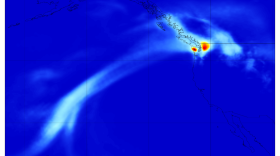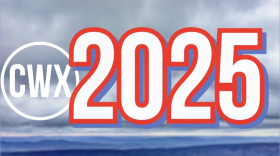-
We’re a few weeks into the new year – which also happens to represent a new frontier for weather forecasting in this country.Last month, the National Oceanic and Atmospheric Administration introduced new weather prediction models powered by artificial intelligence.
-
It feels like we just did this exercise, but it's that time of year to look back at some of the most impactful (and some of my favorite) CommonWx stories from 2025.
-
Last month, the Virginia Climate Center at George Mason University released “the Commonwealth’s first comprehensive, science-based evaluation of how past, current and anticipated climate conditions have and will impact Virginia and its people.”
-
Tuesday marks the 40th anniversary of one of the most devastating natural disasters to ever hit the Roanoke Valley. Days of rain culminated with the Roanoke River rising 19 feet in 12 hours on Election Day, 1985.
-
The calendar says October, which isn’t exactly known for being a month trademarked by tornadoes across the country… but something very interesting occurred this month when it comes to severe weather in this country.
-
CommonWx is a weather and climate newsletter, and while this story does have ties to those fields of study, it’s more about how our earth is so intricately connected – and how little we know about those connections.
-
It’s summer – which means it’s hot. And Virginia has already gone through a couple stretches of really hot weather since the calendar flipped to summer. But there are parts of the state that are hotter than others…
-
A new model from researchers at Virginia Tech can produce a flooding projection in minutes.
-
“Hail is one of those things that we don’t really know how it forms,” says Sean Waugh, a research scientist at NOAA’s Severe Storms Laboratory.
-
Last fall’s Hurricane Helene brought unparalleled devastation to parts of Southwest Virginia, Northeast Tennessee and Western North Carolina.Communities there are still cleaning up months later. The storm has long passed, but its impacts may have a long tail – potentially adding to another natural disaster this part of the world typically deals with during this time of year.
Play Live Radio
Next Up:
0:00
0:00
Available On Air Stations










